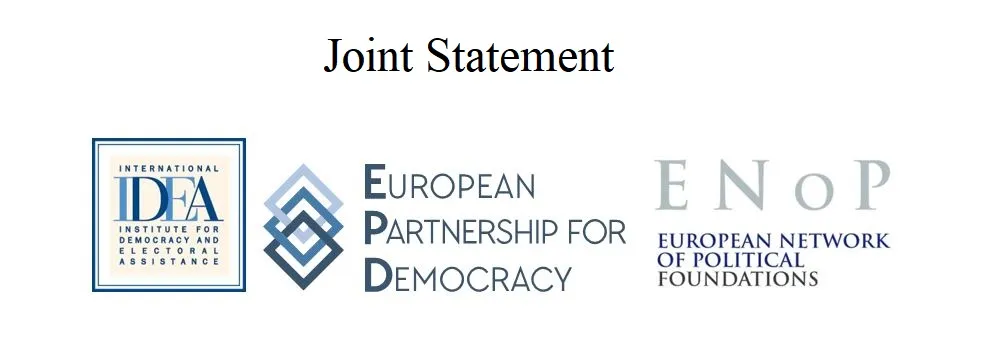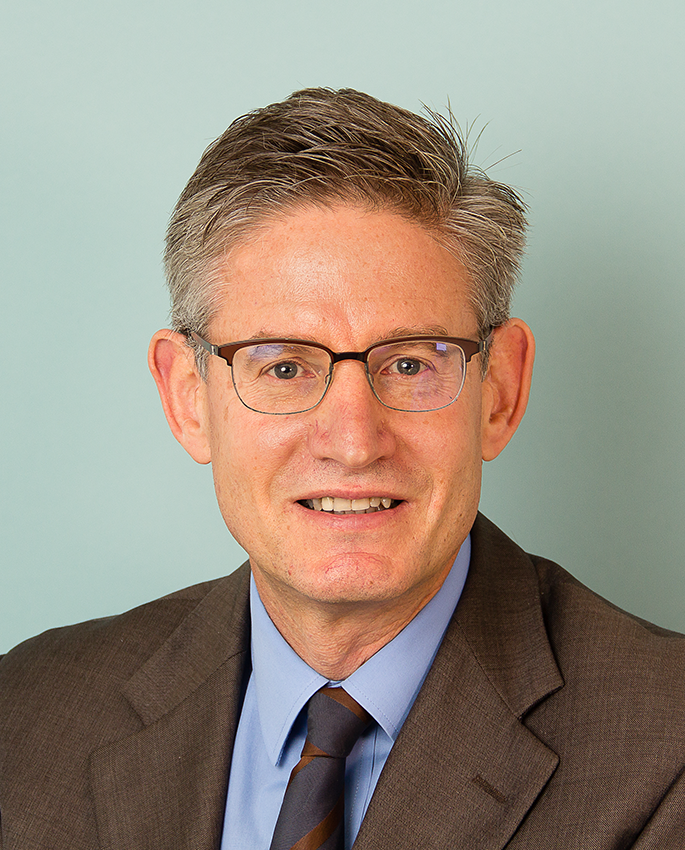Joint statement on the European Commission's proposal for the establishment of the 'Neighbourhood, Development and International Cooperation Instrument' of the EU Budget

The Office of the International Institute for Democracy and Electoral Assistance (International IDEA) to the European Union, the European Partnership for Democracy (EPD), and the European Network of Political Foundations (ENoP) welcome the publishing by the European Commission of its detailed proposal for establishing the 'Neighbourhood, Development and International Cooperation Instrument (NDICI)' of the next EU budget, which covers the majority of spending beyond EU borders.
As democracy support actors, we are encouraged by the importance the European Commission attaches to the European Union’s external action. We view the proposed Euro 123 billion for the NDICI, including the increase of funding for the democracy and human rights programme, in a positive light. Based on our previous Joint Statement on, 'The importance of democracy and democracy support in the EU Multi-annual financial framework (MFF 2021-2027)’' of 23 May 2018, we acknowledge that the NDICI proposal has certain distinct advantages. However, the proposed regulation in its current version lacks detail in many areas to make a comprehensive analysis of its impact on democracy and democracy support. To this end, and based on available information, we are concerned that the latest proposal could denote, inter alia, the following:
- The absence of a strategic approach to democracy support, focusing on addressing short- to medium-term priorities, while diminishing the importance of promoting shared interests and values for sustainable democracy and effective democracy support;
- Lack of clarity and short on specificities in relation to sustainable democracy and effective democracy support, including dedicated and guaranteed ring-fenced funding for democracy support;
- Reduced participation and inclusion of local authorities as democracy actors;
- No specific mentioning and hence no guarantee for dialogue with high- and middle income countries to cooperate on democracy support and the implementation of the Agenda 2030;
- Lack of clarity on NDICI modalities for the promotion of coherence, linkages and improved communication, including the application of a degree of flexibility that the instrument is introducing in funding for external actions; and
- Reduced oversight from key institutional democracy and development actors, in particular the European Parliament.
We hope that the aforementioned concerns would be addressed and clarified during the ongoing consultative process on the MFF that involves the European Commission, European Council and EU Member States, European Parliament, and all democracy support actors. To further contribute to this consultative process, we would like to make the following recommendations in relation to democracy and democracy support in the next MFF 2021-2027:
- Include democracy support as one of the top EU political priorities
Assured EU leadership on democracy, promotion of human rights, rule of law, and inclusive governance is both a reflection of EU values and a critical way of addressing EU priorities. Democracy should be regarded as a long-term and non-linear process that can help to foster long-term stability, security, and peace, as well as complement sustainable development in the EU´s neighbourhood and beyond in accordance with Agenda 2030.
- Follow an inclusive approach for the implementation of democracy support programmes
Continue to ensure that all relevant public and private sector non-profit organizations, international organizations, civil society organizations and foundations, including political foundations, national, regional and international parliamentary bodies are consulted as appropriate, and considered as possible implementing partners in democracy support under the NDICI. Such an inclusive approach to democracy support contributes to improved implementation, and the strengthening of EU leadership in democracy and democracy support.
- Ensure a clearly defined and comprehensive articulation of the scope of democracy support
Under existing EU financing instruments for external action, the scope of instruments is contained in the main act, whereas the NDICI proposal supports the scope of sectors in various annexes (Annex III for democracy and human rights). These should be more clearly defined, moved to and captured in the main NDICI act in order to reflect their central importance. Further, it is also important to capture and make reference to all relevant and existing EU democracy and democracy support policy documents[1] in the NDICI text. This would allow for greater consistency, transparency and accountability.
- Ensure wider consultation and coordination among EU Institutions, EU Member States, and democracy support actors for EU democracy support policy
There is a need for the development and implementation of an overarching and strategic EU democracy support policy that includes EU institutions, EU Member States and democracy support actors. This would provide a clearly defined framework for the implementation of democracy support programmes under the NDICI.
- Guarantee full compliance with processes and procedures for the approval and implementation of EU financing instruments under the next MFF
The MFF covers a period of seven years, and it is therefore important to ensure that sufficient time is allocated for dialogue and consultation during the negotiation process. To this end, full compliance with the processes and procedures for the approval of the MFF by the Council of the European Union and European Parliament, should be guaranteed, irrespective of time and other pressures. Further, the governance procedures for the new proposed instruments must be more clearly outlined, including the oversight role of the European Parliament.
The Office of the International Institute for Democracy and Electoral Assistance (International IDEA) to the European Union, the European Partnership for Democracy (EPD), and the European Network of Political Foundations (ENoP) reiterate our commitment to collaborate with EU Institutions and EU Member States on the Multi-Annual Financial Framework to ensure strategic, effective and accountable EU democracy and external democracy support. It is our endeavour to remain seized of this important matter, and we will release further joint statements in the future to contribute to the approval of a MFF that promotes the full implementation of Agenda 2030, including support for sustainable democracy globally.
Brussels, July 2018
[1] For example, the 2009 Council Conclusions on ‘Democracy Support in the EU’s External Relations’, 2012 ‘EU Strategic Framework and Action Plan on Human Rights and Democracy’, 2012 Commission Communication on ‘The roots of democracy and sustainable development: Europe's engagement with Civil Society in external relations’, 2014 Council Conclusions on ‘A rights-based approach to development cooperation, encompassing all human rights’, and following edition of the 2015-2019 ‘Action Plan on Human Rights and Democracy’.




